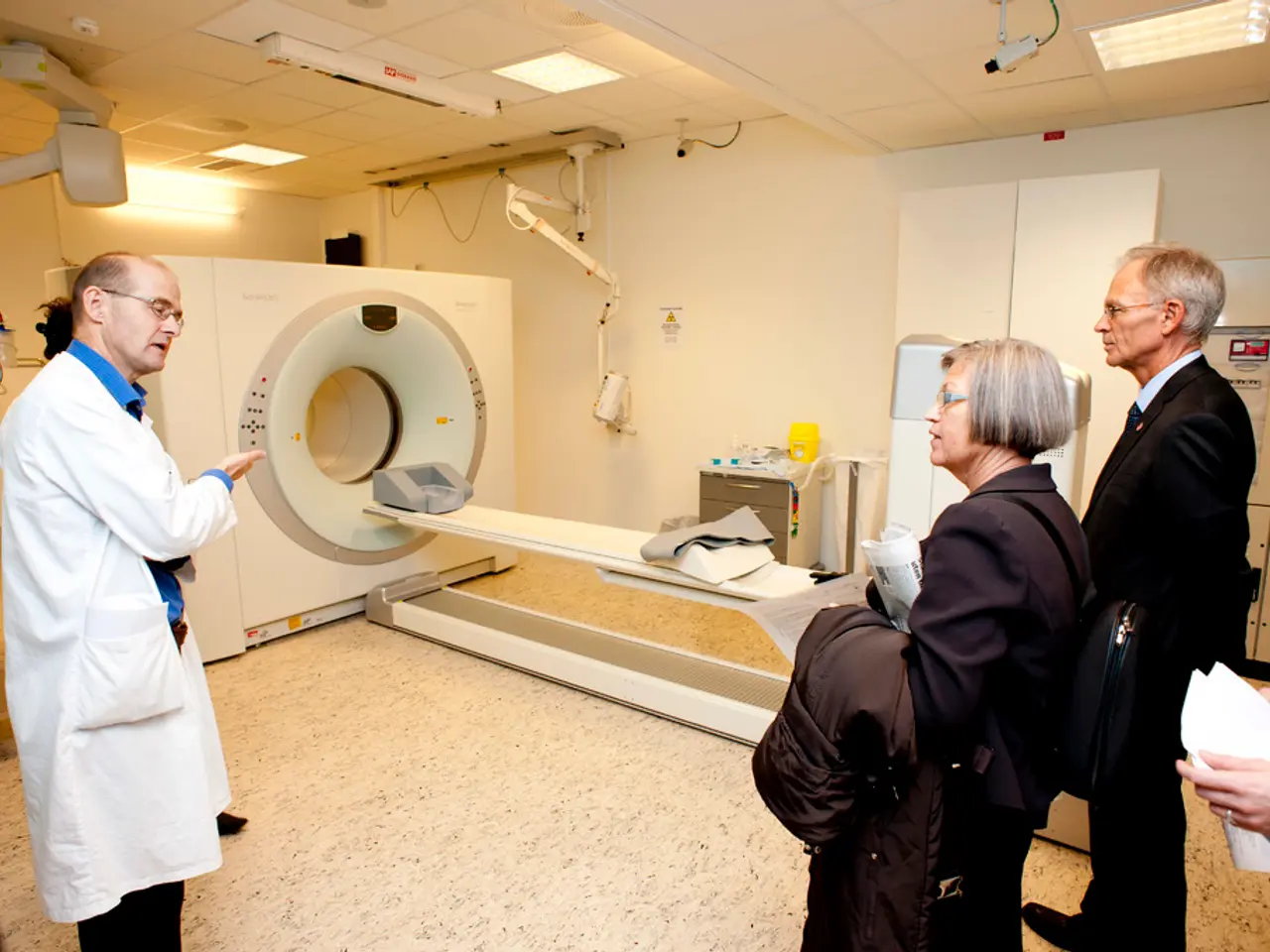Advance in Brain Trauma Diagnosis through Blood Tests Gains Groundswell of Support
The S-100B blood test is gaining recognition as a useful biomarker for predicting the severity of traumatic brain injuries (TBI) and detecting damage to the blood-brain barrier (BBB). This test, which reflects nervous system cell injury, is being studied extensively in various research projects.
Recent studies, including one funded by the National Institutes of Health and the American Geriatrics Society's Jahnigen Career Development Scholars Award, have shown that S-100B, when measured alongside other markers like GFAP (glial fibrillary acidic protein) and IL-6 within 24 hours post-injury, can help evaluate TBI severity and systemic inflammatory response.
However, when compared to GFAP, S-100B has shown less sensitivity and specificity in predicting CT scan abnormalities, the severity of injury, and the need for neurosurgical intervention. GFAP, on the other hand, has demonstrated higher sensitivity and specificity for clinically important TBI, providing a strong negative predictive value for ruling out significant brain injury.
The presence of S-100B in blood indicates changes or damage to the BBB, as it is primarily found in astroglial cells and should be restricted to the central nervous system. Therefore, S-100B aids in detecting BBB disruption after head trauma, contributing to early diagnosis and monitoring.
In the United States, the current standard screening tool for head injuries is the CT scan. However, this method does not detect more subtle injury to the brain's neurons. A pilot study of 20 patients found that S-100B concentrations could accurately predict the function of the BBB 12 hours after injury, eliminating the need for the invasive procedure of ventriculostomy, which was previously the best way to know if the BBB was open before the S-100B test.
The research conducted by physicians at six Emergency Departments in upstate New York, including the ED at Strong Memorial Hospital in Rochester, is studying the accuracy of the S-100B test among 1,500 patients. The data collected from this study will be used to apply for U.S. Food and Drug Administration approval.
A report by a national panel of brain experts suggests that the S-100B blood test could result in a 30 percent reduction of CT scans. This reduction could lead to significant cost savings and reduced radiation exposure for patients.
Moreover, the S-100B blood test could have implications for future drug studies. As the research shows, any diagnostic test for brain injury should incorporate a way to measure the status of the blood-brain barrier into its design.
In conclusion, while S-100B remains a valuable biomarker for screening and prognosticating TBI, GFAP has emerged as a more robust and specific biomarker in recent data. S-100B’s ability to reflect BBB status makes it a helpful clinical tool but usually in combination with other biomarkers for improved diagnostic accuracy.
In the realm of medical-conditions and health-and-wellness, the S-100B blood test is undergoing clinical trials as a potential biomarker for neurological-disorders such as traumatic brain injuries (TBI). The test's potential to detect damage to the blood-brain barrier (BBB) and evaluate TBI severity, coupled with the measurement of other markers, is a subject of extensive science and research.
Furthermore, the outcomes of these studies hold promise for future drug studies, as any diagnostic test for brain injury should ideally incorporate a way to measure the status of the blood-brain barrier (BBB) into its design, making S-100B a significant marker in the scientific and medical community's pursuit of advancing health-and-wellness, especially for neurological-disorders.




